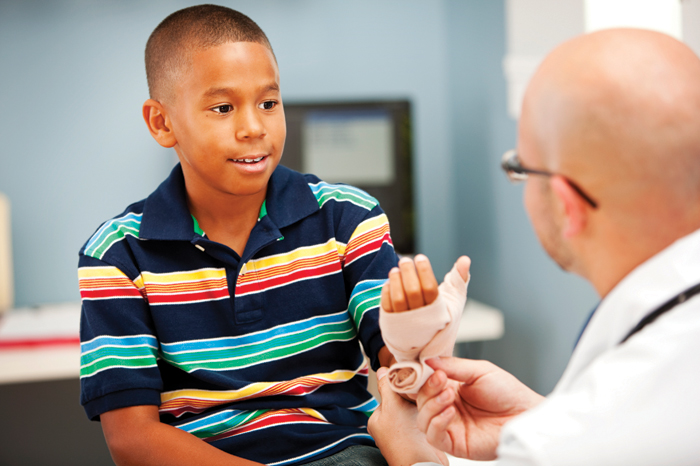 Has something like this ever happened to you? It’s a Saturday morning and your child wakes up with a very sore throat and a fever. It’s not a medical emergency, but you can’t wait until Monday for your doctor’s office to open.
Has something like this ever happened to you? It’s a Saturday morning and your child wakes up with a very sore throat and a fever. It’s not a medical emergency, but you can’t wait until Monday for your doctor’s office to open.
This is the gap that urgent care fills. Urgent care clinics (sometimes called walk-in clinics) provide non-emergency medical care when your regular provider is not available. Urgent care is typically open evenings, weekends and holidays. Most urgent care clinics serve patients of all ages. Some, like Seattle Children’s Urgent Care Clinics in Bellevue and Seattle, specialize in treating children.
Out-of-pocket costs for urgent care are usually less than for an emergency room visit. And like an ER, urgent care is open to all — you don’t need to be a current patient. For these reasons, urgent care can also be a smart choice when you need medical care away from home.
So, what conditions can be treated in an urgent care clinic, and when should you go to an emergency room?
First, if your child’s illness or injury is life-threatening, call 911.
Take your child to urgent care for these conditions: allergies; minor asthma attack; bronchitis; minor burn; colds; coughs; minor cut; dehydration; diarrhea; dizziness; earache or ear infection; fever in children over 2 months; minor head injury without loss of consciousness; insect or dog bite; migraine headache; nausea; pink eye; rash; sore throat; sprain or strain; mild stomach pain; urinary tract infection.
Take your child to an emergency room for these conditions: severe asthma attack; bleeding that won’t stop; broken bone; severe burn; severe cut; fainting; fever in infants less than 2 months old; head injury; pneumonia; poisoning; seizure; shock; severe stomach pain; swallowed object.
When you go to urgent care or the emergency room, expect to wait. Other patients with more serious conditions may be treated before you. Bring along items to keep your child content, such as snacks, books, a blanket or a favorite stuffed animal. Older children can listen to music on headphones, play a handheld game or read while they wait.
Before you arrive, explain to your child where you are going and what will happen. Reassure them that you will stay with them the whole time, and that the care they receive will help them feel better.
To learn more about which injuries and illnesses can be treated at urgent care, review this list.




